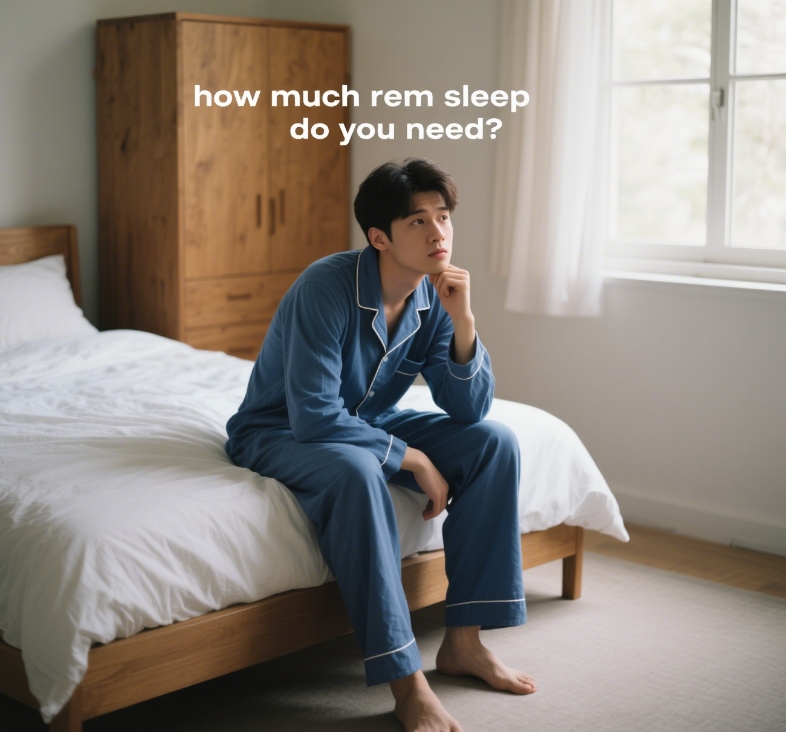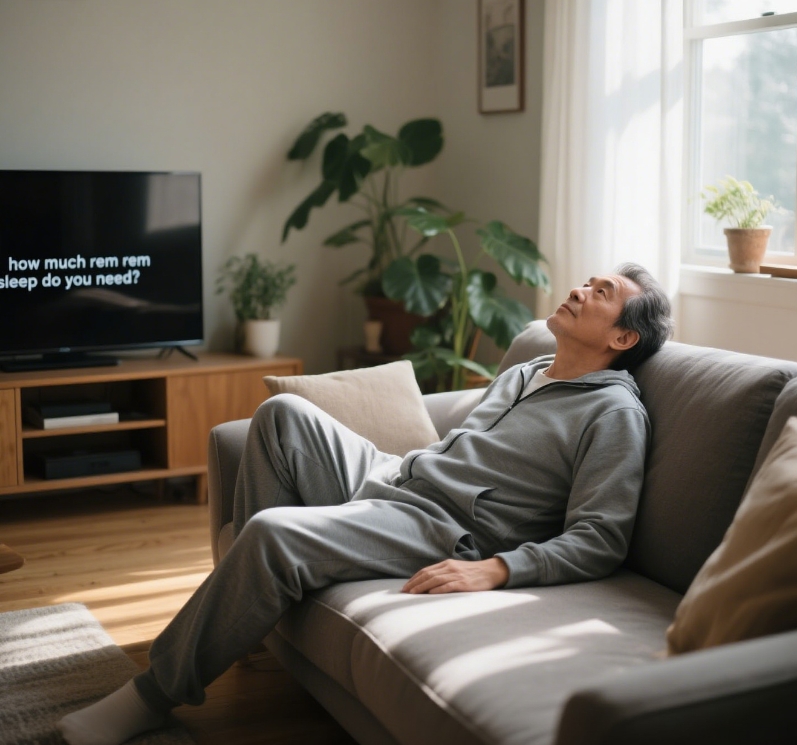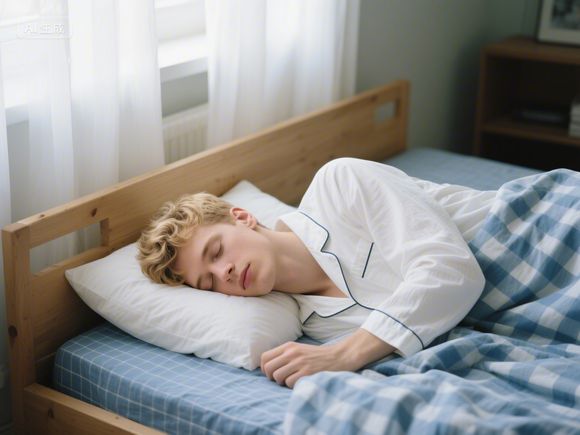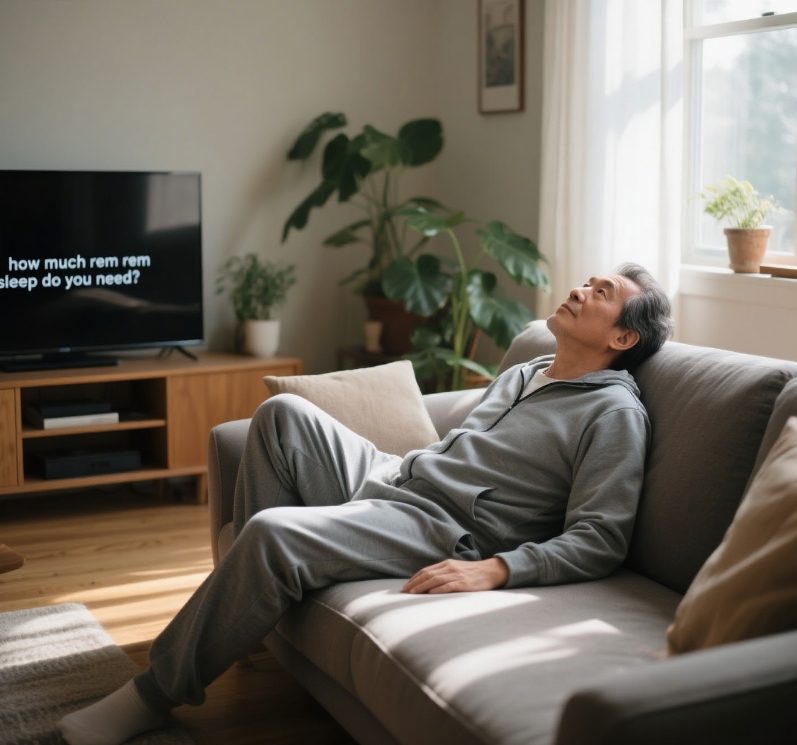How Much REM Sleep Do You Need? A Science-Backed Guide by Age

Green
writer | doctor
You know those surreal, story-like dreams you recall each morning? They're the hallmark of REM sleep – but this critical phase isn't just about dream production. It acts as your brain's overnight maintenance crew, processing emotions, cementing memories, and resetting your cognitive function. So how much of this neurological tune-up do you actually require? We examined clinical guidelines and sleep laboratory studies to give you evidence-based answers.

The Non-Negotiable: Your Brain's REM Requirements
According to the American Academy of Sleep Medicine (AASM), healthy adults need REM sleep for 20-25% of their total nightly rest. For someone sleeping 7 hours, that translates to 84-105 minutes. But this isn't arbitrary – brain scans reveal REM's unique role in emotional processing and memory consolidation. As Dr. Matthew Walker, neuroscientist and author of Why We Sleep, explains: "During REM, your brain replays the day's experiences at high speed, cross-indexing them with existing memories. It's cognitive housekeeping you cannot outsource."
Why the 25% Threshold Matters
Fall below 15% REM for consecutive nights, and measurable deficits emerge. A 2023 Harvard study tracked participants with reduced REM and found:
- 40% slower problem-solving speed
- 31% decline in emotional regulation
- Reduced neuroplasticity (the brain's ability to rewire itself)

REM Needs Across Your Lifespan
Your REM requirements shift dramatically from cradle to senior years. This table summarizes key data from the National Sleep Foundation's longitudinal research:
| Age Group | REM % of Total Sleep | Nightly Target (8-hour baseline) | Critical Functions Supported |
|---|---|---|---|
| Infants (0-12 months) | 40-50% | 192-240 minutes | Neural pathway development, sensory integration |
| Adults (18-64 years) | 20-25% | 96-120 minutes | Memory consolidation, emotional reset, creativity |
| Seniors (65+) | 15-20% | 72-96 minutes | Neuroprotective clearance (reduced dementia risk) |
Note: After age 50, REM diminishes by approximately 0.6% per decade due to natural changes in sleep architecture. This makes optimization strategies increasingly vital.
4 Hidden Costs of REM Deprivation
Chronic REM deficiency creates ripple effects beyond tiredness:
1. Memory Fragmentation
During REM, the hippocampus replays daily learnings to transfer them to long-term storage. Without adequate REM, a 2022 UC Berkeley study found participants retained 38% less information after 48 hours.
2. Emotional Volatility
REM sleep dampens amygdala reactivity (your brain's panic button). In people with <25% REM, fMRI scans show 58% stronger emotional responses to negative stimuli according to Psychiatry Research.
3. Metabolic Disruption
REM regulates stress hormones like cortisol. Johns Hopkins researchers linked REM deficits to increased insulin resistance – independent of total sleep duration.
4. Neurological Vulnerability
REM facilitates glymphatic clearance of neurotoxins. The New England Journal of Medicine correlates low REM in seniors with accelerated amyloid-beta accumulation (a biomarker for Alzheimer's).
Evidence-Based REM Optimization Strategies
You can't force REM, but these neuroscience-backed methods create ideal conditions:
Chronobiology Alignment
Your circadian rhythm governs REM timing. For maximum REM density:
- Get 10+ minutes of morning sunlight within 30 minutes of waking
- Avoid evening exercise – it delays REM onset by 42 minutes (Sleep Medicine Journal)
The Alcohol Paradox
While alcohol may hasten sleep onset, it suppresses REM by up to 34% in the first half of the night. Each drink within 3 hours of bedtime reduces REM duration by approximately 20 minutes.
Thermal Regulation
REM occurs most efficiently when core body temperature drops. Maintain bedroom temperatures at 18.3°C (65°F) – studies show this extends REM cycles by 12% compared to 22°C (72°F).
Tracking Caveats
Consumer wearables (Oura Ring, Fitbit) often misestimate REM by 23-41% according to independent Sleep Health journal tests. Instead, track:
- Dream recall frequency: Consistent morning recall suggests healthy REM
- Morning alertness: Do you wake feeling mentally refreshed?
Expert Answers to Your Top REM Questions
"I don't remember dreams – does that mean I'm REM deficient?"
Not necessarily. Dream recall depends on waking during or immediately after REM. More reliable indicators are your daytime focus and emotional stability.
"Can medications affect REM?"
Significantly. Common impacts:
- Antidepressants (SSRIs): Reduce REM by 15-30%
- Beta-blockers: Increase vivid dreams by altering norepinephrine
- Melatonin: No direct REM effect but stabilizes sleep timing
"Is too much REM possible?"
Yes. Consistently exceeding 30% REM (e.g., 140+ minutes nightly) correlates with depression risk in adults. If you sleep 9+ hours regularly with intense dreaming, consult a sleep specialist.
Why Trust This Guide?
Content reviewed by Dr. Rebecca Robbins, PhD (Sleep Medicine Researcher, Harvard Medical School). Sources include peer-reviewed studies from:
- American Academy of Sleep Medicine (2023 Clinical Guidelines)
- National Institutes of Health Sleep Research Database
- Journal of Clinical Sleep Medicine (2008-2023 Meta-Analyses)
Important: This information does not replace medical advice. Those with chronic insomnia, sleep apnea, or depression should consult a sleep physician. Crisis support available at 988 Suicide & Crisis Lifeline.
Your Next Step: The 3-Day REM Reset
Try this physician-approved protocol:
- Day 1: Set fixed wake-up time (even weekends)
- Day 2: Eliminate caffeine after 2 PM and alcohol 4 hours pre-bed
- Day 3: Add 20-minute afternoon walk + 10-minute dream journaling upon waking


